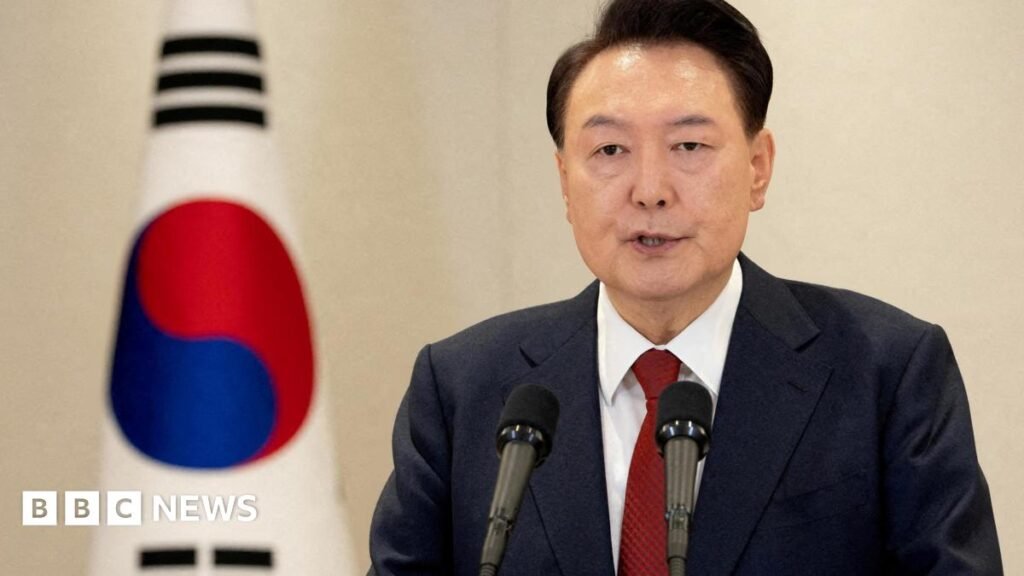South Korea’s impeachment process means Yoon has been suspended from his duties while the constitutional court decides whether to uphold his impeachment. If that happens, he will be permanently suspended.
His decision to declare martial law – which he claimed at the time was to confront “anti-state forces” in parliament – was seen by some as an attempt to break a political deadlock after the opposition won a landslide in April.
After his late-night speech in which he announced the decree, opposition MPs and protesters gathered at the National Assembly, only to be met by police and soldiers who barricaded the building.
When the deputies were able to force entryProsecutors say Yoon told Capital Defense Command chief Lee Jin-woo that military forces could fire if necessary to enter the National Assembly.
“Tell (your troops) to go to the voting chamber, four for each (legislator) and enforce them,” Yun allegedly told General Lee.
“What are you doing? Break the door and pull out.”
After lawmakers voted to lift martial law, Yoon told General Lee to “go ahead” because he could declare martial law multiple times, the indictment said.
Prosecutors say the indictment draws evidence from former Defense Minister Kim Yong-hyun, who was also indicted on Friday for allegedly telling Gen Lee to follow Yoon’s orders several times on Dec. 3.
He also allegedly ordered commanders to seize the National Election Commission building and arrest its staff using cable ties, eye masks, ropes, baseball bats and hammers that were prepared by the military.
Kim will be held in custody pending trial, according to a press release from investigative bodies.

